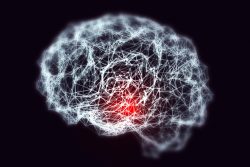 With Alzheimer’s and other forms of cognitive decline on the rise, could a lack of certain immune cells be to blame? Scientists are investigating whether replenishing these vital components could potentially help reverse some of this damage.
With Alzheimer’s and other forms of cognitive decline on the rise, could a lack of certain immune cells be to blame? Scientists are investigating whether replenishing these vital components could potentially help reverse some of this damage.
Researchers conducted an intriguing experiment to better understand the function of mucosal associated invariant T-cells or MAIT cells. They deactivated a gene responsible for producing these cells in mice and then monitored differences between normal and genetically altered rodents as they aged. To everyone’s surprise, while both groups performed equally at first, issues with forming new memories began to manifest in middle-aged mice lacking MAITs.
After being injected with a modified version of MAIT cells, the cognitive abilities of genetically altered mice dramatically improved – they were again able to smoothly navigate through complex mazes in no time. The researchers believe this is the initial work to link MAITs to cognitive function. Further exploration is now needed to compare levels of MAIT cells in healthy people versus those with Alzheimer’s disease.
Our brains are protected by MAIT cells, which can be found in both the meninges and circulating blood. A simple blood test may reveal whether someone has lower levels of these essential guardians compared to healthy persons. This may give insight into a possible diagnosis for Alzheimer’s or other cognitive disorders.
In the 1990s, MAIT cells were discovered and immediately identified as crucial innate-like T cell players in human health. Since then, studies have further demonstrated their presence, notably concentrated within the liver and skin. But until now, no one had detected these enigmatic members of our immune system within the meninges—the membrane layers that envelope and protect our brains.
MAITs serve as guardians of the brain. By producing antioxidant molecules to counterbalance toxic byproducts from energy production inside the meninges they help inhibit cognitive decline. Without their protective powers against reactive oxidative species damage, substances enter and inflame your brain leading to decreased brain function over time.
Genetic manipulation blocked the production of MAIT cells in lab mice. However, we can increase our own levels by tweaking dietary habits or taking other steps to improve lifestyle choices.
A healthy lifestyle is more important than ever now that a connection between MAIT cell production and the gut microbiome has been found. People who consume antibiotics often or those raised in less diverse microbial environments tend to make fewer of these cells. But anyone can boost their microbiota by making dietary changes or adjusting daily habits to increase exposure to beneficial bacteria. This is just one more reason for people to pursue a healthy and natural lifestyle.
To view the original scientific study click below:
Mucosal-associated invariant T cells restrict reactive oxidative damage and preserve meningeal barrier integrity and cognitive function





